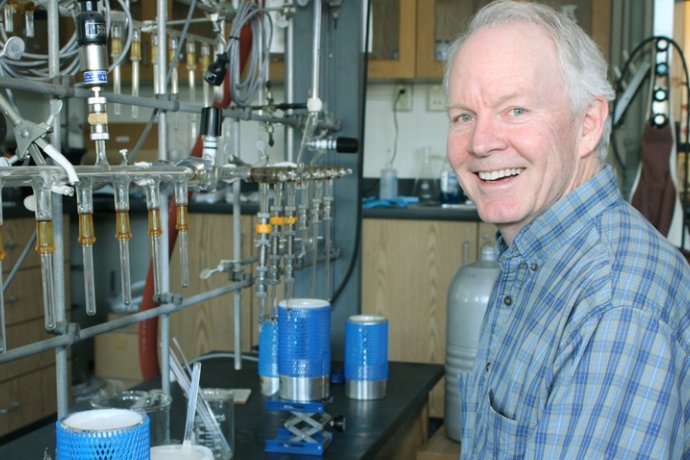Steven R. Dunn
they/them
- Professor Emeritus of Geology

Steven Dunn's research focuses on processes that affect rocks and minerals during metamorphic events (for example, when continents collide and rocks are subjected to increased temperature and pressure). The temperatures and pressures of metamorphism determine what mineral assemblages are stable; therefore, careful study of mineral assemblages can provide information about the conditions of metamorphism.
Dunn is also interested in fluids present during metamorphism, and the use of stable isotopes as geochemical tracers for fluid-rock interactions. They constructed a vacuum line at Mount Holyoke for preparing samples for isotopic analysis. "We have the ability to extract oxygen and carbon from carbonates, graphite, and organic matter for isotopic analysis," says Dunn. Another of Dunn's primary interests is the temperature-dependent exchange of carbon isotopes between coexisting calcite and graphite during metamorphism.
Dunn has published articles in the Journal of Geoscience Education, the American Journal of Science, the Journal of Metamorphic Geology, and other scholarly publications. They are the recipient of numerous grants from the National Science Foundation, including a major grant in 2002 for the acquisition of a scanning electron microscope.
Areas of Expertise
Metamorphic petrology; stable isotope geochemistry; calcite-graphite isotope thermometry; favorite field area = Grenville Province, Ontario
Education
- Ph.D., M.S., University of Wisconsin, Madison
- B.S., Humboldt State University


